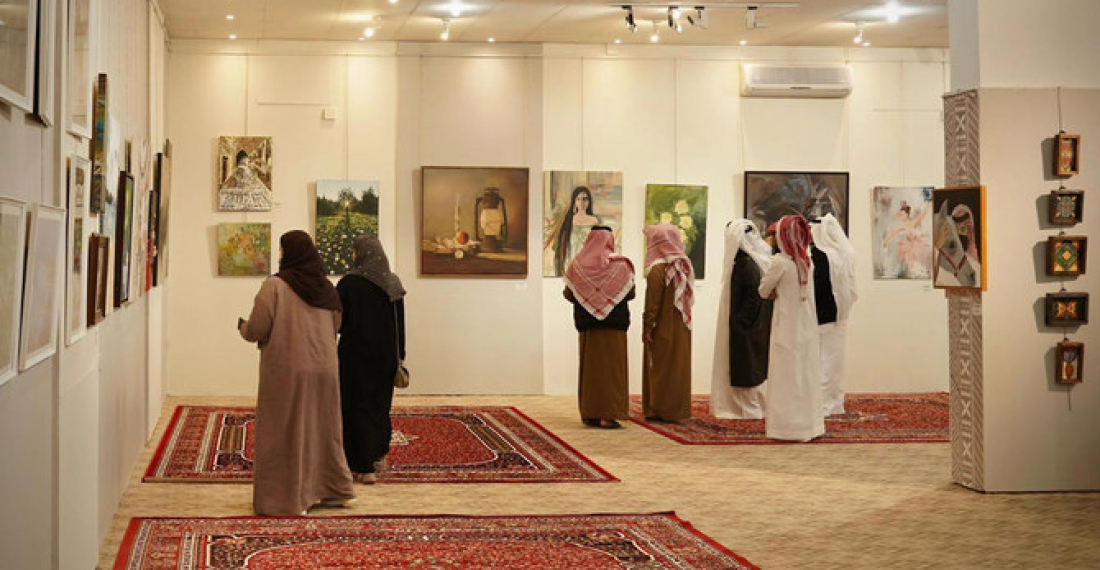The role of women in various aspects of Saudi society has been changing dramatically in recent years. One area where great strides has been made is the arts and culture scene, including in various Saudi regions. The women’s art movement in Baha is elevating the Saudi art scene by showcasing regional and national heritage.
Visual artist Samia Al-Othman told the Saudi Press Agency that the women’s art movement in Baha has witnessed significant development in recent years. Al-Othman has taken part in local and international exhibitions and forums, and undergone training courses in different art schools, utilizing a range of techniques since 2012.
Nada Al-Jabiri said that she discovered her talent at an early age, adding that aspirations for the future can be seen in her drawings, which aligns with empowering women and using their artistic ideas.
Women artists in Baha have been influenced by local and global experiences, which is reflected in many of their works. (SPA)
She added that visual art is sending a great message by highlighting national identity and introducing Saudi cultural, historic, social and artistic heritage to the world.
Artist Jawhara Al-Ghamdi believes that the significant development in the art movement, cultural and artistic dialogue and multiculturalism has empowered women in recent years to assert their presence in the art scene. She added that the women’s art movement in Baha has boosted tourism in the region and showcased its historical and social heritage.
Sarah Al-Ghanem, another visual artist, said: “Visual art, in general, is part of a social movement, notably women’s visual arts, which express the woman’s perspective, her future, roles and distinguishing traits.”
Women artists in Baha have been influenced by local and global experiences, which is reflected in many of their works. (SPA)
Artist Azza Al-Hasen’s journey began in an art class, after which she attended training sessions that honed her talent. Those included acrylic paint pouring, impressionism and palette knife painting sessions. Al-Hasen is now a certified trainer in visual arts.
Ahmed Saleh Al-Muntasheri, a visual artist and member of the Association of Culture and Arts in Baha, said that the region’s women’s art movement, though young, grew rapidly in 2012 when there was a noticeable increase in female artists.
He added that women artists in the region have been influenced by local and global experiences, which is reflected in many of their works.
source: commonspace.eu with Saudi Press Agency






